Interactive Narrative Workshop
Interactive Narrative Workshop with Dr Alan Trotter & Dr Mark Blacklock (Arts Weeks 2021) Starts: 13 May 2021, 19:30 Finishes: 20 May 2021, 20:30 Venue: Online Book your place What is interactive digital narrative and what tools are available to writers? As part of Arts Weeks 2021, Birkbeck is running a series of two hands-on workshops, run by Dr Alan Trotter, author of Muscle (Faber, 2019) and All This Rotting, a digital story for phones, and Dr Mark Blacklock, Senior Lecturer at Birkbeck and the author of the novels Hinton (Granta, 2020) and I'm Jack (Granta, 2015). The workshops are suitable for beginners and will guide participants through first encounters with freely available software tools such as Twine, Twitter Bots Done Quick, and Telescopic Text, while also introducing the history and theory of digital narrative. These workshops are generously supported by the Experimental Collaborative Humanities Network. Places limited to 20 on a first-come, first-served basis. Attendees must be available for both workshops: 13 May 19.30 20 May 19.30 Booking one ticket gives you access to both workshops. The 20 May workshop features feedback on draft piece made by participants. Dr Alan Trotter wrote the novel Muscle (Faber, 2019). He studied Philosophy and English Literature at the University of Edinburgh as an undergraduate; he has a Creative Writing MLitt (distinction) and a PhD in English Literature, both from the University of Glasgow. His PhD included creative and critical writing (the dissertation was on what it called 'Body Texts': work in print and electronic literature, that makes unusual use of its form): it was supported by Arts and Humanities Research Council funding throughout, as well as with an AHRC-supported placement at the John W. Kluge Center at the Library of Congress in Washington D.C. His short fiction has been published by Somesuch Stories, Under the Influence, McSweeney’s Internet Tendency, and the Electronic Literature Collection, Volume 3. He has also published a digital story for phones called All This Rotting with Editions at Play (a collaboration between Google Play and the publisher Visual Editions). He has worked for publishers including Penguin, Vintage, Granta, and currently works at Canongate Books, and is writing two novellas. Dr Mark Blacklock is Senior Lecturer in Modern and Contemporary Literature at Birkbeck College, University of London, and a novelist. His most recent novel, Hinton (Granta, 2020), was longlisted for the Walter Scott Prize, and described in The Guardian as ‘a singular literary achievement.’ His first novel, I’m Jack, a fictionalised autobiography of Wearside Jack, was published by Granta in 2015 and optioned for a film that was never made. Mark’s monograph, The Emergence of the Fourth Dimension, a literary and cultural history of higher-dimensioned space, was published by Oxford University Press in 2018. The essay ‘Weirding the Void: Higher Spatial Form in Weird Fiction’...
Aliens, Vampires, Surrogates
Online Roundtable Aliens, Vampires, Surrogates: Revolutionising the Gestational Workplace 28 April 2021, 6-7.30pm BST online (booking required) We’re delighted to welcome Dr Sophie Lewis (Brooklyn Institute for Social Research) and Katie Stone (Birkbeck) who will join Dr Caroline Edwards for a live roundtable discussion of gestational labour. The commodified, often outlawed and invisibilised labour of commercial surrogacy highlights the way in which capitalist biotech moves vulnerable surrogate mothers across borders in a transnational network of business partnership. This gestational workplace – the precarious “pregnancy gig economy” – demands that we reimagine pregnancy, social reproduction, binary gender and the family. We will consider how various monstrous subjects found in utopian and science fiction, from vampires, aliens and parasites to bioengineered Frankensteinian creatures, might offer suggestive glimpses of the kind of gestational communism we all deserve. Book your ticket here Speaker bios: Dr Sophie Lewis is a visiting scholar at The Alice Paul Center for Research on Gender, Sexuality and Women at the University of Pennsylvania, and a member of the teaching faculty of the Philadelphia branch of the Brooklyn Institute for Social Research. She is the author of Full Surrogacy Now: Feminism Against Family (Verso Books, 2019), which Donna Haraway hailed as “the seriously radical cry for full gestational justice that I long for.” Sophie’s scholarship operates in the spheres of trans feminist cultural criticism and queer social reproduction theory, notably around utopian critiques of the family, Marxism, and Black and abolitionist feminisms. Her research currently focuses on the etiologies of eugenic, bioconservative and imperial feminisms, including narratives of so-called white slavery past and present, femonationalism, and trans-exclusionary femocratism. Katie Stone is a PhD student at Birkbeck, University of London. Her thesis explores childhood and utopianism as imagined in science fiction. It seeks to put mainstream science fiction into conversation with feminist, queer and decolonial critical and creative work in order to interrogate the genre’s complicity with various structures of oppression. Katie is co-founder of the research network ‘Utopian Acts’ whose work has been featured in a special issue of Studies in Arts and Humanities Journal which she and Raphael Kabo have edited. Katie has written for Foundation, Fantastika and SFRA Review and she is one of the founding members of the research collective ‘Beyond Gender’. She is on Twitter as @cyborg_feminist and @UtopianActs. Dr Caroline Edwards is Senior Lecturer in Modern & Contemporary Literature at Birkbeck, University of London where she is Director of the Centre for Contemporary Literature. She has published widely on science fiction and utopian literature, contemporary literary form, the philosophy of time, and radical subjectivities. Caroline is author of Utopia and the...
Transitions 9 Programme
Transitions 9: New Directions in Comics Studies 8-10 April 2021 Programme (Time zone: BST/UTC+1) THURSDAY 8 April 2021 15:00 – 15:15 Welcome 15:15 – 16:45 Panel 1 1.1: Periodicals 1.2: Bodies Sara Dallavalle Comics Magazines: Not only Comics but also Criticism Jonathan Bass The Rube Goldberg Case: The Panel as Paradigm in Newspaper Comics and New York Dada Kristian Hellesund Migration in Three Early American Newspaper Comics Jose L Garcia Politics of Body Prostheses, Disability, and Replacement in Aaron Diaz’s Dresden Codak Sharmistha Chatterjee Examining the Diseased Material Body in Stitches Eszter Szép Drawing and Transforming the Body in Ken Dahl’s Monsters 16:45 – 17:00 Break 17:00 – 18:15 Keynote Frames of Thought Dr Nick Sousanis (San Francisco State University) FRIDAY 9 April 2021 10:00 – 10:15 Day’s Welcome 10:15– 11:45 Panel 2 2.1: Adaptations and Pastiche 2.2: Cultural Memory Audrey Chan Alberto Breccia’s Parody of Futurist Paintings in Graphic Narratives Miloš Tasić and Dušan Stamenkovic Visualising an Oral Epic: Lobačev’s Comic Book Ženidba Dušanova Oskari Rantala V for Pissed-offed-ness vs. Vendetta A case of anti-immigrant subversion of comics intertexts Jakob F. Dittmar and Anders Høg Hansen Pasts renewed in new German graphic storytelling Lena Holec Ravnikar Preservation of Slovene Literary History in Comics Hakan Keleş Expanded frame, time and space: 80’s Urban Atmosphere at Arabacıoğlu’s “Panorama” Pages 11:45 – 13:30 Panel 3 3.1: Curating, Constructing and Countering Women's Histories 3.2: Practice-based Research Neha Yadav Whose Line is it Anyway: Graphic Anthology Drawing the Line as a Counter-narrative to Mainstream Rape Reportage in India Andrea Aramburú-Villavisencio Curating the Ordinary: Relationality and Affect in Latin American Women’s Autobiographical Comics Esther McManus Constructing Inclusive Histories: Reflections on the temporality of comics and activist archives Natasa Thoudam In Search of a Form while Inventing a Language of Subversion through Stereotypes Daniel Merlin Goodbrey How to Cheat at Comics: Digital alternatives to traditional techniques for comic illustration Irina Richards Narrating cultural heritage through comics: a graphic investigation into witch-hare folklore of Wales 13:30 – 14:00 Lunch 14:00 – 15:30 Panel 4 4.1 4.2 Individual & Community Driss Faddouli Moroccan Facebookers and the Visual Rhetoric of Political Negation Ibtisam Ahmed The Utopian Critical Mass of Spider-Man Barbara Eggert Family Issues In Early Moomin Comic Strips Processes and products of drawing Clari Searle Creating ‘Funnies’: how to build an effective creative process for Higher Education pedagogy Peter Hebden The Stuff of Dreams: Objects and Disorientation in the work of Julie Doucet and Anders Nilsen Dom Davies Fracking Hell! Joe Sacco’s Seismic Lines 15:30 – 15:45 Break 15:45 – 17:00 Keynote Comics Studies and Education in...
Coastal Dystopias
18 March 2021, 2-3.30pm GMT Online via Zoom (booking required) CCL Director Dr Caroline Edwards (Birkbeck) will be speaking about "Coastal Dystopias" as part of the Institute for Historical Research (IHR) series on "Coastal Connections." Caroline will join Prof. Dr. Silja Klepp (Kiel), Dr Yi-Chia Chen (UColorado-Denver) and Prof. Dr. Teresa Sabol-Spezio (Independent Scholar, formerly at the Rachel Carson Center for Environment and Society) to discuss how coastal regions have inspired utopian and dystopian anticipations of ravaged future societies set amidst environmental crisis, calamity and apocalyptic devastation. The Coastal Connections series is running in Spring 2021 to extend interdisciplinary research connections relating to coastal histories. It is convened by James L. Smith (University College Cork), Tuba Azeem (Victoria University of Wellington), Melanie Bassett (University of Portsmouth), Elsa Devienne (Northumbria University), Xiaofei Gao (University of Colorado), Joana Gaspar de Freitas (University of Lisbon); Isaac Land (Indiana State University), David Worthington (University of the Highlands and Islands), Hannah Boast (University College Dublin) and Harrie Neal (University of York). Event description: While traditional histories of shorelines often focused on the triumph of the seaside leisure economy or perhaps on subsistence-related activities such as navigation and fisheries, recent developments have cast a grim shadow on the site at which land and sea meet and have forced scholars to rethink coastal history in a more dystopian light. Beaches, for example, are no longer simply associated with innocence, freedom and sensuality, they are places of refuge—providing shelter for Australians fleeing fires in January 2020—sites of muted or open military conflict—as seen most recently in the case of Varosha in Northern Cyprus—and, most tragically, the last resting place for many refugees attempting the Mediterranean crossing to Europe. In parallel, many artists have recently invested the coast with dystopian scenarios, from Kim Stanley Robinson’s novel New York 2140 to J. A Bayona’s film The Impossible. This phenomenon is actually not as new as it may seem at first sight. While many utopias have been set at the water’s edge, other narratives engaged with the dramatic quality of the shores with The Beach (1959), a Cold War movie dramatizing a nuclear doomsday, being a prime example. These cultural products remind us that the history of shorelines cannot be reduced to bathing beauties and dazzling resorts. In this seminar session, speakers coming from different disciplines (including history, geography, and literature) will discuss their research into the dystopian qualities of shorelines across the world. They will ask: why have coastlines been the (imagined or real) sites where a diverse array of dystopian scenarios have unfolded? Is there something new about the twentieth century and our present moment that makes coastlines appear particularly dystopian? How can...
CFP: Transitions 9 Conference
CALL FOR PAPERS: TRANSITIONS 9 – new directions in comics studies 2021 Online 8-10 April 2021 Hosted By BIRKBECK, UNIVERSITY OF LONDON Following the cancellation of Transitions 2020, we are delighted to re-announce the call for papers for Transitions 9 in 2021. Transitions is a platform for emerging research in comics that is free to attend and participate. This event is focused towards postgraduate and early career speakers, and draws a diverse crowd of both new and more established researchers, as well as creators, aficionados and other interested parties. Our aim is to build connections between comics scholars working in diverse contexts of research and practice, to provide a platform for productive debate, and to create a space from which further collaborations can emerge. Key note speakers: Prof Dr Sylvia Kesper-Biermann (Universität Hamburg) and Dr Nick Sousanis (San Francisco State University) Respondent(s): TBA Rather than adopting a narrow theme, the shape and identity of the programme will emerge from the submitted papers. We thus welcome abstracts for 20 minute papers, or pre-constituted panels of three, on topics including (but not limited to): Comics, comix, comic strips, graphic novels, manga, manhwa, bande dessinée superheroes, adventure, war, horror, fantasy, crime, romance, humour & other genres; documentary/historical/journalistic comics, autobiographical/biographical modes, graphic medicine politics of representation and inclusion in comics texts and productions, formal approaches, transgressive comics, educational and didactic comics, comics for young adults & children readers and fandoms, creators, comics & the law, publishing histories, web-comics & comics exhibitions, transnational circulation, political economy of comics Since Transitions this year will be held through video conferencing, we ask that presenters record a 20 minute presentation in advance, which will be followed by live q&a sessions for each panel. Further details for pre-recorded presentations will be shared once proposals have been confirmed. As always, Transitions 9 will be free and open to all. Please send your proposal to transitionssymposium@gmail.com. Please attach your abstract of 250-300 words plus a short biographical note (preferably as a Word document), indicating ‘abstract’ in the email subject line and your name in the file’s title. This year we are also seeking volunteers to sketchnote / visually record each panel, in order to compile a visual record of the conference. If you’d be interested in recording a panel, please email us a couple of (low-res) images or a link to an online portfolio at the above address with ‘sketchnoting’ in the subject line. You do not need to be submitting a paper to take part in this. The deadline for submissions is 7 March. We aim to notify applicants by 14 March. With best wishes, The Transitions Team...
MIR Live 2021
The CCL's very own Mechanics' Institute Review (MIR) is launching a new online series of evening events, MIRLive. Our first MIRLive of 2021 on Friday 26th February will be headlined by Femi Kayode whose debut novel Lightseekers comes out February 4th, published by Raven Books. Femi Kayode grew up in Lagos, Nigeria. He studied Clinical Psychology at the University of Ibadan and has worked in advertising over the last two decades. He was a Packard Fellow in Film and Media at the University of Southern California and a Gates-Packard Fellow in International Health at the University of Washington, Seattle. His writing credits include several award-winning works for the stage and screen. In 2017 he was awarded the UEA Literary Festival Scholarship, which helped to fund his MA in Creative Writing Crime Fiction. Whilst studying at UEA, his debut novel Lightseekers won the Little, Brown/UEA Crime Fiction Award. He lives in Namibia with his family. The show starts at 7.30 pm (GMT) Reading alongside Femi will be: Linda Mannheim Liam Hogan Tom Browning David Plans Stephen Vowles Elizabeth Holli Wood Watch Live via our Youtube Channel SUBMISSIONS ARE NOW CLOSED. Each event features a range of UK-based writers, from established authors to the next generation. Valuing diversity in literature, MIRLive is an inclusive and inspiring night. It is hosted by writers and comedians Kayleigh Cassidy and Alexandra Petropoulos, so expect a fun and engaging evening. It really is the best place to enjoy fresh writing within a supportive community. Guest authors to date include Bernardine Evaristo, Jonathan Coe, Abi Dare, Louise Hare, Derek Johns, Hari Kunzru, Susan Elderkin, Zoë Fairbairns, Russell Celyn Jones, Peter Hobbs, Benjamin Markovits, Erica Wagner, Marie Phillips, Kate Pullinger, Helen Simpson, Richard T. Kelly, Jeremy Sheldon, Sarah Salway, Jean McNeil, Rich Hall, Julia Bell, Richard Milward, Emer Martin, Blake Morrison, Nii Parkes, Robert Hudson, Amanda Smyth, Chloe Aridjis, Magnus Mills, A.L. Kennedy, Niall O’Sullivan, Alex Preston, Toby Litt, Monique Roffey, Michael Rosen, Mez Packer, Zoe Gilbert, Alan Beard, and Ronan Hession. The MIRLive team will put out a call for submissions for each event and readers may also be selected from the wider submissions pool. As we read your submissions, we may find a piece of work that we feel would be excellent read aloud and will get in touch to ask you to appear at one of our spoken-word events. If you feel that your work would be great for MIRLive, please do flag this up to us in your submissions email. Find out how to submit your work to The Mechanics’ Institute Review here. Submissions for MIRLive should be prose of up to 1500 words and poetry up to...

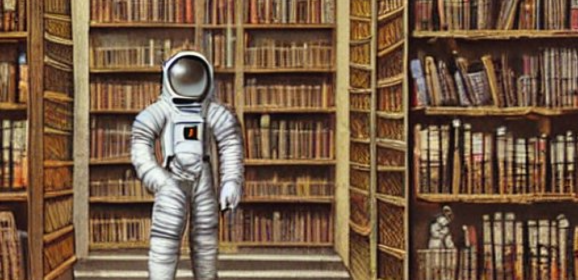

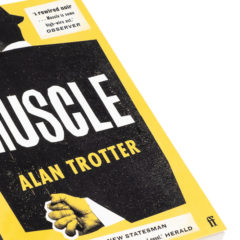
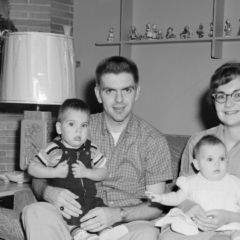
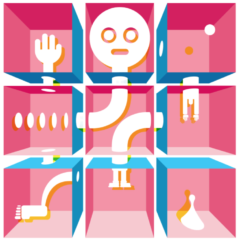

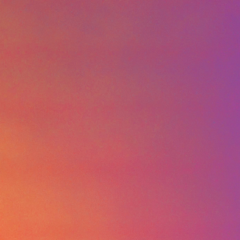
Recent Comments